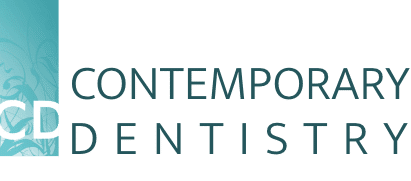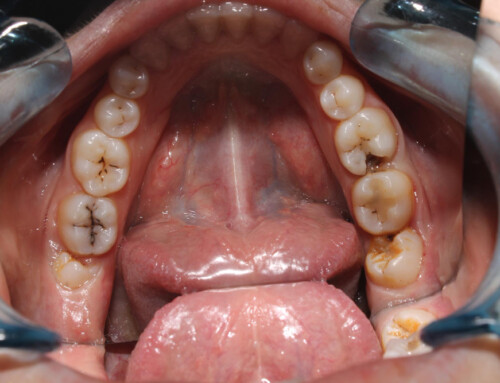Tooth enamel is the hardest material in the human body. It has to be so it can stand up to daily use for biting and chewing, then still be able to have a healthy, beautiful smile? Unfortunately, sometimes our teeth cannot handle the stresses we subject them to, and they start breaking. Once they start breaking, they often don’t stop, with many teeth breaking one after the other. Here are some common reasons why your teeth might be breaking, along with insights to help you identify potential causes and prevent future issues. If you’re experiencing dental problems, don’t hesitate to contact Rochester, NY dentists for expert advice and care.
Genetic Factors
Sometimes, tooth problems are genetic. As with so many aspects of the body, tooth strength is not the same for everyone. There’s a wide range of strengths in dental enamel and dentin. At the extreme weak end, we have genetic conditions that weaken teeth. Dentinogenesis imperfecta is when the dentin, the middle layer of your tooth, doesn’t form correctly. Amelogenesis imperfecta is a genetic condition where the outer layer of the tooth, the enamel, doesn’t form correctly. Both conditions can make your teeth more likely to break.
Other people have weak dentin or enamel without meeting the criteria for an imperfecta diagnosis.
Medications
If you experience multiple broken teeth, check the listed side effects of your medications. In some cases, medicines might cause effects that weaken your teeth. They might, for example, make it hard for your body to absorb calcium. Or they might cause dry mouth. If you suspect medications contribute to your broken teeth, talk to your doctor about alternative medications, different dosages, or strategies to deal with risks.
Acidic and Sugary Food
Your tooth enamel is strong and hard, but it’s weak against acidic attack. If you regularly eat acidic foods like citrus or vinegar, it can weaken your teeth. Acidic drinks can be harmful, too. Wine, energy drinks, fruit juices, and more can all damage your teeth.
Sugary drinks and foods can cause similar damage because it feeds oral bacteria that excrete acid after eating. Bacteria clinging to your teeth put the acid directly on your teeth to create cavities where they can shelter.
Poor Oral Hygiene
If you’re not brushing and flossing regularly (brushing twice a day and flossing once daily), you might have acidic damage to your teeth, weakening them.
However, it’s actually just as bad to brush your teeth too often or too hard. This can erode your enamel as well. To avoid damaging your tooth enamel, you should:
- Use a less abrasive toothpaste
- Don’t brush too hard (some electric toothbrushes have pressure sensors to warn you)
- Don’t brush with toothpaste more than twice daily
We can help you find the right balance with your oral hygiene. Just enough, but not too much.
Teeth Grinding
Clenching and grinding teeth can stress your enamel, causing it to crack and erode. Initially, this might not lead to cracked teeth, but once your teeth start chipping and cracking, multiple may be affected.
Bite Problems
Biting and chewing forces should be balanced in your mouth. However, if you have bite problems, potentially related to temporomandibular joint disorders (TMJ or TMD), your bite might pressure certain teeth, causing them to chip and crack.
Having crooked teeth can also lead to uneven bite forces. Some teeth might be positioned to take the brunt of bite forces, while others are positioned to help. This makes some teeth more likely to crack and break.
Dehydration and Dry Mouth
If your mouth gets dry regularly, your teeth can suffer. Saliva helps with many potential dangers to your teeth. First, saliva has antibacterial properties to reduce the amount of harmful bacteria in your mouth. Second, saliva can neutralize acid, reducing the impact of acidic foods and drink on your teeth. Finally, your saliva has minerals that help your teeth strengthen themselves. It’s the closest thing we have to healing teeth. It’s a slow process, but your teeth can weaken without it.
Try not to get dehydrated too often. If you regularly experience dry mouth, talk to your doctor or dentist about solutions.
Too Many Fillings (Especially Metal Amalgam)
Fillings can protect your teeth, but they aren’t as good as your natural tooth material. When your teeth have many fillings, they are weaker and more prone to breaking.
Metal amalgam fillings are especially problematic. These fillings are very hard and resistant to wear, but they expand and contract differently from your natural teeth. This means that when you drink hot beverages or eat hot foods, the fillings expand faster than your teeth, putting pressure on them. This can create cracks that cause your teeth to break. This is in addition to other concerns about metal fillings.
Related Article: Alternatives To Root Canals
Hard Foods
Ideally, you shouldn’t eat anything much harder than a raw carrot. If you are eating very hard foods like unpopped popcorn kernels, it can contribute to breaking teeth. Crunching ice with your teeth, cracking nuts, or using your teeth for other tasks can also similarly affect your teeth.
Nutritional Deficiency
Your body needs important nutrients to be able to maintain your teeth. First, you need to get enough calcium, which is an important element for your tooth enamel. Second, you need to make sure you’re getting the vitamins that help your body absorb calcium and use it, including vitamins D and K.
Chain Reaction
Your teeth work together to handle their difficult tasks of biting and chewing. Ideally, they distribute the force between them, but once one of your teeth breaks, the forces get redistributed among the other teeth, and some teeth might be missing support from their neighbors, which are chipped or cracked. This means that after one tooth cracks, you might see a chain reaction among your other teeth.
Help for Breaking Teeth in Rochester, NY
If you are experiencing cracked, chipped, or broken teeth in Rochester, NY, let the dentists at Contemporary Dentistry help. We take a holistic dentistry approach to your problems and help you address the multiple causes that might be behind your tooth problems. We can also repair damaged teeth with dental crowns when necessary.
To learn how we can help with your cracking teeth, please call (585) 244-3337 or email Contemporary Dentistry today to schedule an appointment at our office in Rochester, NY.




